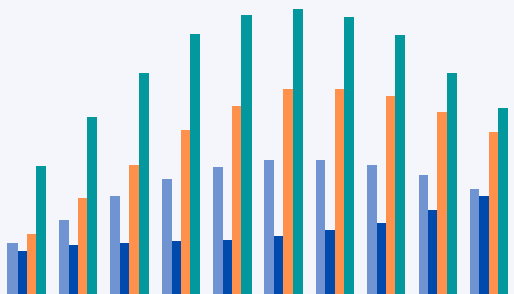
Module 4
Country assessment, health monitoring, and health information systems
Overview
Comprehensive data on refugee and migrant health are scarce, and there is little or no systematic disaggregation of health data as a function of migratory status. Data collected on refugee and migrant populations in different countries are often not comparable because of the use of varying methods of collection or indicators. However, the available literature identifies recurring areas of concern in relation to migration, displacement and health outcomes, particularly infectious diseases, noncommunicable diseases (NCDs), trauma, mental health and gender- and age-specific vulnerability. World Health Assembly resolution WHA70.15 on the health of migrants, the Global Compact for Safe, Orderly and Regular Migration, the Global Compact on Refugees and the SDGs advise governments and partners to obtain better migration and displacement health data to enable evidence-based policy and interventions. However, migration health data are largely unavailable or of varying quality and reliability. At all levels, national, regional and global, progress on improving collection and analysis of these data by Member States and international organizations has been limited.
This module contains two tools:
Actions to be considered
- Assess health system and essential public health functions, capacities and processes, and assess the readiness of health facilities to provide essential health services for refugees and migrants as well as local communities.
- Conduct baseline collections of primary and secondary information on refugee and migrant health situations and needs at national or subnational level.
- Support the development of evidence-informed health interventions building on existing capacities, gaps and opportunities, with the aim of contributing to the reduction of morbidity, mortality and health inequity among refugees and migrants.
- Develop and implement surveillance of the health of refugees and migrants as part of overall national health surveillance, and issue progress reports that include health-related data on refugees and migrants, disease-risk distribution and risk reduction.
- Develop disaggregated data on the health of refugees and migrants at country and local levels, including health-seeking behaviour and access to and use of health care services.
- Support the development of intercountry approaches to the generation of data and databases on health risks in countries of origin, transit and destination that can be shared.
- Promote the portability of health data and records in accordance with national law to make individual health information available for use in different countries, as necessary.
- Support the development of health cards, including the possibility of health cards for population groups in movement, thereby facilitating continuity of care.
- Develop and share comprehensive profiles on the health status of key migrant populations, including health risks in countries of origin, transit and destination, to support the adaptive capacity of host countries' health systems and guide equitable health interventions to address migrants' specific health needs.
- Participate in regional needs assessment and prioritization to plan response interventions and assign resources with a comprehensive regional vision over both the short and the longer term.
- Strengthen national and decentralized health surveillance and information systems to better capture the health status and needs of migrant populations, including the development of sentinel surveillance systems, as necessary, and collection of disaggregated data such as health-seeking behaviours and access to and utilization of health care services.




